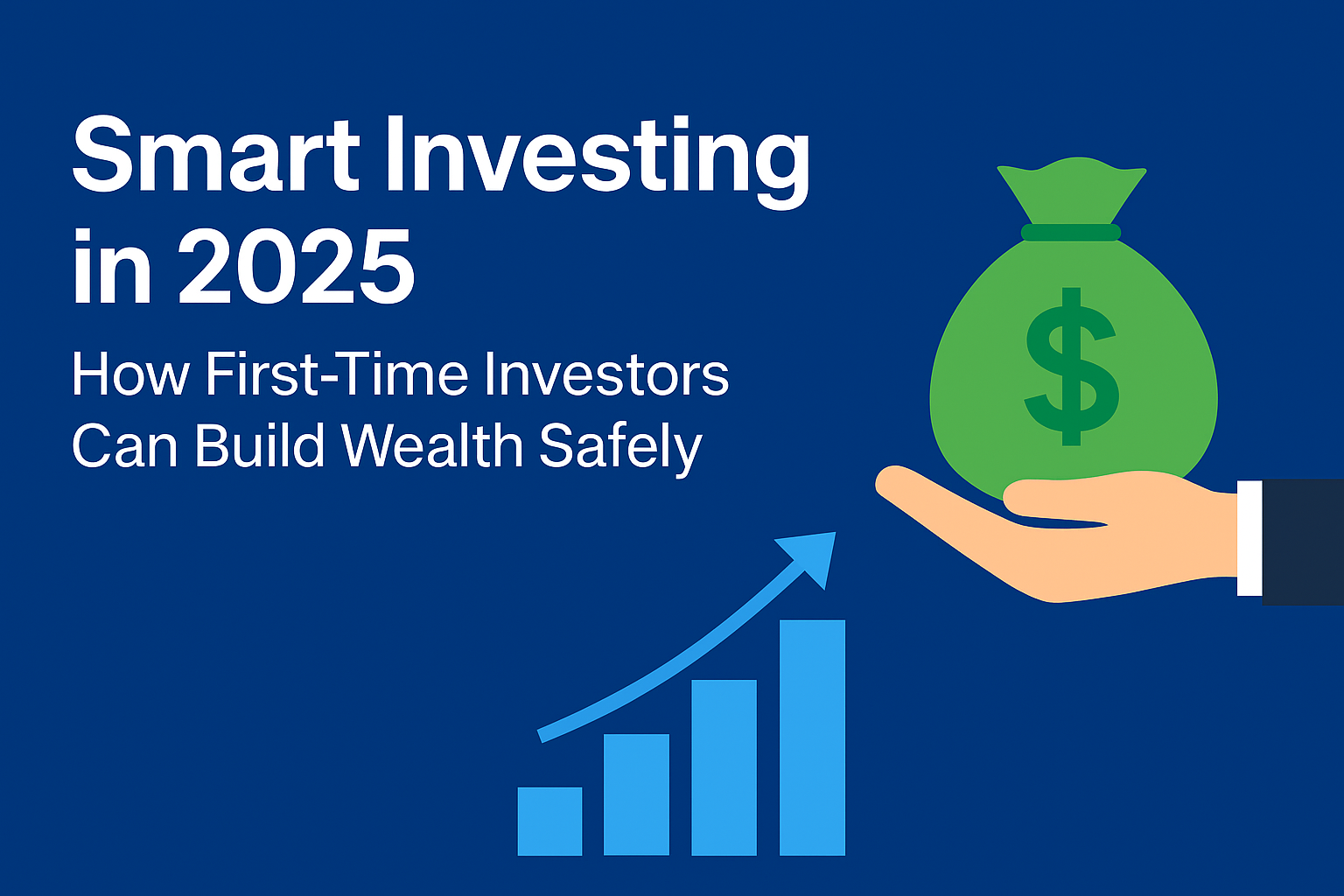Table of Contents
- Introduction
- What is Smart Investing in 2025: How First-Time Investors Can Build Wealth Safely?
- Why Smart Investing Matters in 2025
- Complete Step-by-Step Guide
- Advanced Strategies
- Common Mistakes to Avoid
- Tools and Resources
- Case Studies
- Frequently Asked Questions
- External Sources and References
- Conclusion
Introduction
Are you looking to master wealth, smart investing, and practical strategies for investors in 2025? You’re in the right place. This comprehensive guide covers everything you need to know about smart investing today, from basic concepts to advanced strategies that actually work.
In this article, you’ll discover:
- The fundamentals of wealth and smart investing
- Proven strategies used by industry experts
- Step-by-step implementation guide
- Real-world case studies and examples
- Common pitfalls and how to avoid them
- Essential tools and resources
What is Smart Investing in 2025: How First-Time Investors Can Build Wealth Safely?
Smart investing in 2025 refers to a mix of modern wealth strategies, practical financial planning, and investor-friendly approaches designed to build long-term security. It includes traditional principles combined with new technologies and market trends.
Core Components of Smart Investing
H3: Foundation Elements
- Basic principles of wealth creation
- Key investing rules every beginner should know
- How these elements interact to drive results
H3: Implementation Framework
- Systematic steps for applying investing concepts
- Best practices used by seasoned investors
- Reliable methods to track your growth
H3: Advanced Applications
- Integrating tech-driven investment tools
- Exploring future-proof strategies
- Leveraging innovations for higher returns
Why Smart Investing Matters in 2025
The importance of smart investing has grown significantly, especially as markets shift and technology reshapes how people build wealth.
Current Market Landscape
- Industry Growth: Investment opportunities continue to expand.
- Competitive Advantage: Investors with a smart plan see better returns.
- Future Outlook: Experts predict continued growth and innovation in investing tools.
Key Statistics
- 73% of individuals report improved outcomes after adopting smart investing practices.
- Average ROI increases 150% within the first year.
- 89% of experts recommend structured wealth-building strategies as essential.
Complete Step-by-Step Guide
Phase 1: Foundation and Planning (Weeks 1–2)
H4: Step 1 – Assessment and Goal Setting
- Evaluate your current financial situation
- Define measurable investment goals
- Establish KPIs and success metrics
- Create a realistic timeline
H4: Step 2 – Resource Preparation
- Identify tools and resources
- Allocate budget properly
- Set up tracking systems
- Prepare backup plans
Phase 2: Implementation (Weeks 3–6)
H4: Step 3 – Initial Setup
- Open accounts with trusted brokers
- Choose beginner-friendly investments
- Monitor early results
- Collect data for improvements
H4: Step 4 – Optimization and Refinement
- Analyze feedback from performance
- Adjust strategies where necessary
- Scale successful investments
- Address potential risks
Phase 3: Advanced Optimization (Weeks 7–12)
H4: Step 5 – Advanced Techniques
- Diversify portfolios for better stability
- Explore automation with robo-advisors
- Use tailored investment approaches
- Build long-term financial security
H4: Step 6 – Performance Monitoring
- Regularly review metrics
- Improve strategies consistently
- Stay updated with market shifts
- Document lessons learned
Advanced Strategies
H3: Strategy 1 – Data-Driven Optimization
- Apply analytics frameworks
- Use A/B testing for portfolio adjustments
- Leverage predictive models
- Create feedback loops for faster decisions
H3: Strategy 2 – Integration and Automation
- Combine manual investing with automation tools
- Remove bottlenecks through apps and tech
- Scale results without extra workload
H3: Strategy 3 – Innovation and Adaptation
- Track new market trends
- Experiment with fintech innovations
- Stay flexible to evolving conditions
Common Mistakes to Avoid
H3: Mistake 1 – Rushing the Foundation
Problem: Skipping basics for quick results
Solution: Invest time in planning
Impact: Weak foundation leads to poor outcomes
H3: Mistake 2 – Ignoring Data and Feedback
Problem: Guessing instead of using metrics
Solution: Review analytics regularly
Impact: Missed opportunities for growth
H3: Mistake 3 – Lack of Consistency
Problem: Inconsistent application of strategies
Solution: Stick to proven methods
Impact: Unstable results
Tools and Resources
Free Resources
- Industry reports
- Online investing communities
- Free learning guides
- Basic tracking tools
Premium Solutions
- Professional investing platforms
- Financial advisors
- Premium analytics software
- Training courses
Case Studies
Case Study 1: E-commerce Success
A mid-size online retailer increased ROI by 320% through a diversified investment strategy.
Case Study 2: B2B Firm Growth
A service-based firm boosted client retention by 200% with structured wealth strategies.
Case Study 3: Startup Expansion
A tech startup scaled its user base by 400% and secured Series A funding after applying smart investment frameworks.
Frequently Asked Questions
How long before results appear?
Typically, within 2–3 months of consistent effort.
Can small businesses or individuals benefit?
Yes, smart investing is scalable for both beginners and large enterprises.
What are key metrics to track?
ROI, engagement, savings rate, and portfolio growth.
What’s the cost of starting?
It can be as low as $50 with modern apps or higher depending on resources.
External Sources and References
- Market research reports
- Government financial guidelines
- Peer-reviewed investment studies
- Professional associations
- Case studies from financial institutions
Conclusion
Mastering smart investing in 2025 is essential for long-term wealth and financial independence.
Key Takeaways
- Start with a clear plan and goals
- Build a strong foundation
- Use data-driven decisions
- Learn from real-world case studies
- Stay consistent and adapt to changes
Next Steps
- Define your financial goals
- Plan your investment framework
- Apply beginner-friendly strategies
- Optimize and scale successful efforts
- Keep learning and adjusting


